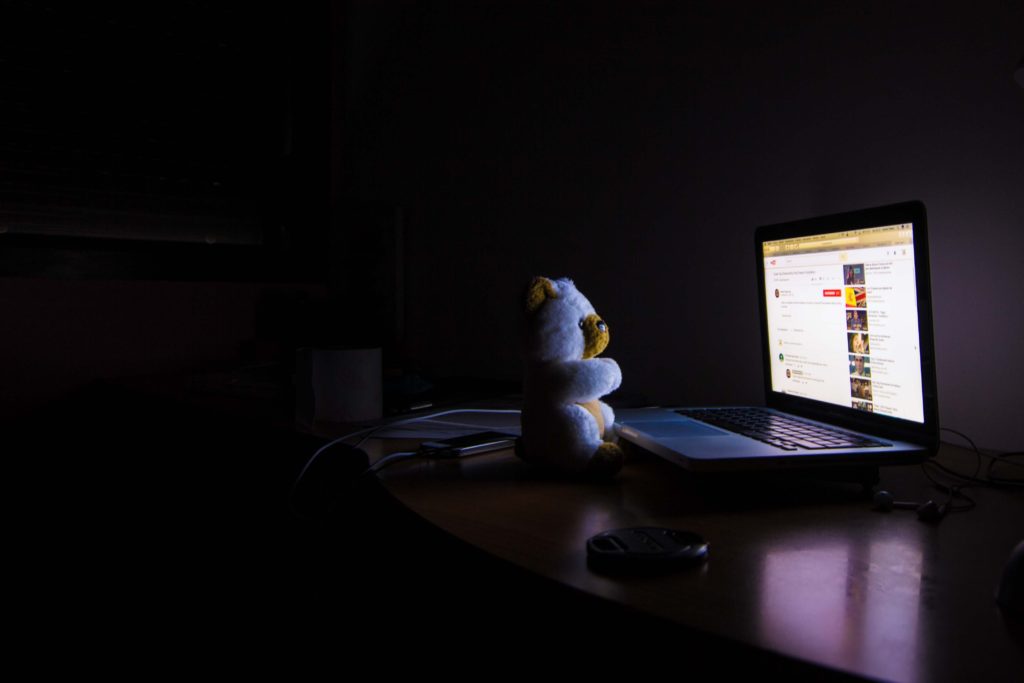
We live in a society where it seems that great yet futile efforts are taken to keep the world’s worst hidden secret: sex.
In my opinion, the clearest demonstration of this phenomenon is in the consumption of pornography, and the divided attitude we have about it. For some, it is the “perfect” way to minimize the consequences that can occur from having sex, a method of relieving sexual tension, and a source of harmless pleasure and practice for the future. Others view it with downcast eyes, as something to nervously try and sweep under the rug, no mention or conversation wanted. Still for others it is something that we directly condemn, shame (both the performers and consumers), and write off as one of the evils of society.
What I’d like to pose in response to all of these visions is: How did we get here?
For me, porn is a clear sign that we don’t understand our sexuality. It intrigues me that we would settle, yes, settle, for something like porn- when there is real sex. Real love. The pornography industry is constantly trying to move closer and closer to “the real thing”; we went from static images in magazines to high-streaming videos to interactive machines and sex avatars. The catch? No matter how close we get, how “real” it feels- it’s a lie. Porn is a substitute, and there is no way for a person who engages with it to escape its limitations. Porn closes people in; love, of the authentic kind, opens people to the infinite.
So I return to my question: Why do we settle for this inherently superficial form of sex, knowing there is the real deal out there? Perhaps amongst the most obvious answers are: convenience, instant gratification, commitment and consequence-free pleasure (in theory), etc. In reality, I think the answer is much deeper.
We don’t understand our sexuality. We aren’t taught what it truly is or shown to express or embrace it in a healthy manner. This is why we confuse empowerment with degradation, why we are fighting for “rights” that fight against who we are. This is why we consume porn. In general, we have a very limited sexual education, that teaches us only about sex, and only in relation to the individual– we seem to forget that sex actually involves two people. Yet our sexuality is more than just sex. It is a brushstroke in every part of the masterpiece we are.
We are naturally curious about our sexuality- how can we not be? But our response to brush it off, especially to children, doesn’t mean they will; in fact, that’s arguably why so many are exposed to pornography early on. The rise of the internet blew the lid off Pandora’s Box. Children and adolescents curious about their sexuality are going to look for answers online (which the porn industry exploits), and porn is often the way they understand sex and their sexuality at a time when their hormones are raging.
The issue is that we haven’t welcomed this critical time period to teach children a healthy way to fully embrace their sexuality, embrace who they are. Either social stigma or awkwardness or shame by parents and mentors have led to children and adolescents developing a distorted notion of sex, love, and identity mainstream media and porn supply. Because porn isn’t real. Nothing about it is designed to be. It is designed to arouse and entertain through unnatural setups and false exchanges.
We never teach about intimacy, and vulnerability, about the other in sex, simply because we aren’t having those conversations with our kids, with one another. We aren’t insisting that sex and pleasure are beautiful, natural things; the taint that has consumed our idea of sexuality reflects our shame on the topic. So it’s normal that almost 80% of our young people (that we know of) watch porn at least once a month¹. It’s unsurprising we aren’t seeking the real thing, because we haven’t been taught what it really is, and we’ve been broken in our capacities to actually find it, were we to understand it. We don’t understand what this love really entails. We see consequences and responsibilities and emotional baggage we don’t want to deal with, because that’s what we are taught with our flimsy “STD and condoms” educational week.
We don’t see sex as the highest expression of love, the ultimate sign of self-gift. We don’t see the other, and we don’t know how to even approach them, comfortable and confident in who we are, with a firm understanding of our sexuality and of the intimacy and vulnerability real sex implicates. So we settle for porn, oftentimes ignorant of that to which we are renouncing.
After a lot of research and thought on pornography, I’ve concluded that it is yet another example of the pressing importance to know who we really are, who the human person is. Our sexuality is inextricably tied to who we are, and we need a change in our society to really understand our sexuality; what it means, what it implies, and how to express it fully and shamelessly. It’s not about repression or full expression, as we often reduce it; sexuality goes beyond sex, and we need to understand it to answer that fundamental question: Who am I?
[su_divider top=”no”]
¹ Source: https://fightthenewdrug.org/by-the-numbers-see-how-many-people-are-watching-porn-today/
Written by Gabriela Castello, a current intern at the WYA Headquarters







